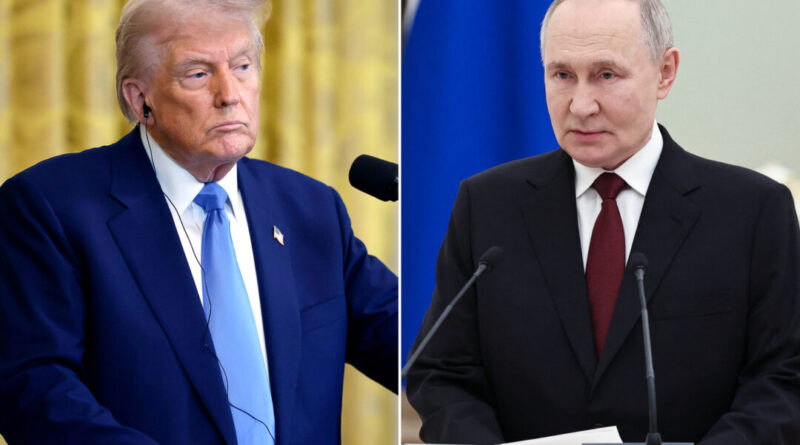Putin Concedes to Restricted Cease-Fire on Ukraine’s Energy Infrastructure After Trump Call
The United States had earlier supported a 30-day ceasefire encompassing all regions involved in the ongoing Russia–Ukraine conflict.
WASHINGTON—After a phone conversation with President Donald Trump on Tuesday, Russian President Vladimir Putin has consented to a limited ceasefire, which stipulates that Russia and Ukraine will refrain from targeting each other’s energy sectors for a duration of 30 days.
The call began at 10 a.m. ET in the Oval Office, with Trump seeking to mediate a ceasefire between the two nations.
“Vladimir Putin reacted positively to this proposal and promptly instructed the Russian military to comply,” added the Kremlin.
This agreement follows a week after Kyiv accepted a different U.S.-supported 30-day ceasefire proposal, which would have encompassed all aspects of the ongoing conflict between Russia and Ukraine, not just energy facilities.
While reviewing the more extensive ceasefire proposal, Putin raised concerns about how the ceasefire would be monitored, questioning whether Ukraine might utilize the pause to regroup and strengthen their military for a potential return to hostilities.
“It was stressed that the essential condition for averting an escalation of the conflict and working toward a resolution through political and diplomatic channels is a complete halt of foreign military aid and the provision of intelligence support to Kyiv,” stated the Kremlin.
Despite the more limited ceasefire arrangement, there remains a slight inconsistency between the descriptions provided by the Kremlin and the White House. The Kremlin characterized the agreement as forbidding attacks solely on “energy infrastructure facilities,” whereas an initial White House summary suggested the ceasefire covers “energy and infrastructure.”
The Epoch Times reached out to the White House for further clarification regarding this limited truce but has yet to receive a response.
In its readout of the call, the White House announced it would continue discussions to broaden the ceasefire to include the Black Sea and aim for a more extensive ceasefire and lasting peace.
“These talks will commence immediately in the Middle East,” said the White House.
The Kremlin also noted that Putin has agreed to free 175 Ukrainians detained by Russia, in exchange for the return of 175 Russians held by Ukraine.
“Our stance: It is now a time for diplomacy, for robust diplomacy,” Sybiha stated on March 18 during a geopolitical conference in India.
“We genuinely believe that with the leadership of President Trump, we could achieve a lasting and just peace.”
The conversation follows a meeting in Moscow last week between Trump’s envoy Steve Witkoff and Putin.
Witkoff remarked that both the U.S. and Russian counterparts had made “substantial progress” in the over three-hour meeting.
During an interview on CBS’s “Face the Nation” on Sunday, Witkoff indicated that the significant gap that previously existed between Ukraine and Russia prior to Trump’s presidency has been reduced.
He highlighted that a ceasefire involves addressing various elements, including preventing combat along a 2,000-kilometer (1,200-mile) border and in regions like Kursk. He underscored the necessity to consider Russia’s focus on specific areas, safeguard a nuclear reactor supplying electricity to Ukraine, ensure access to ports, and establish agreements pertinent to the Black Sea.
This story is still developing and will be updated with further information.





